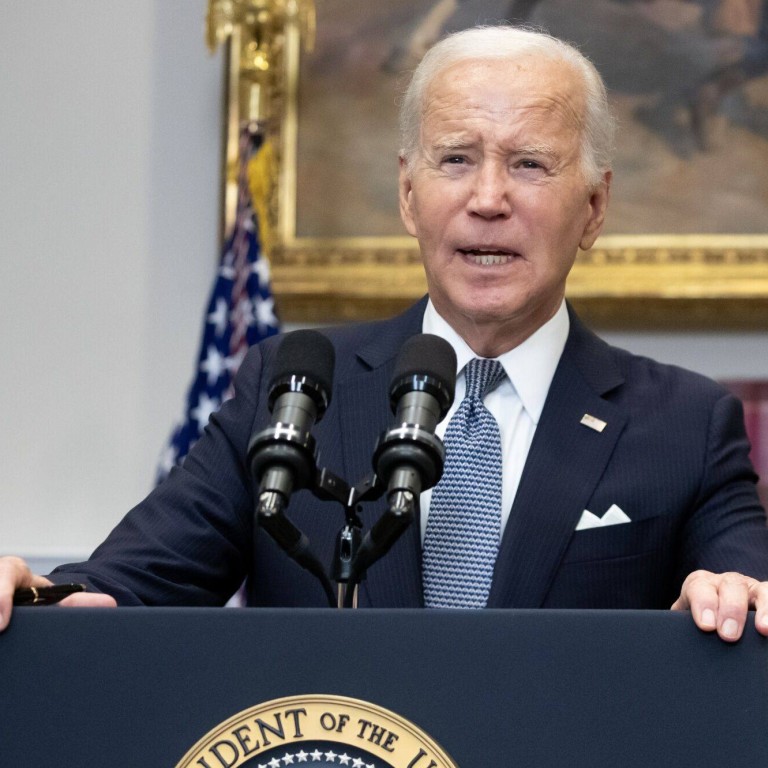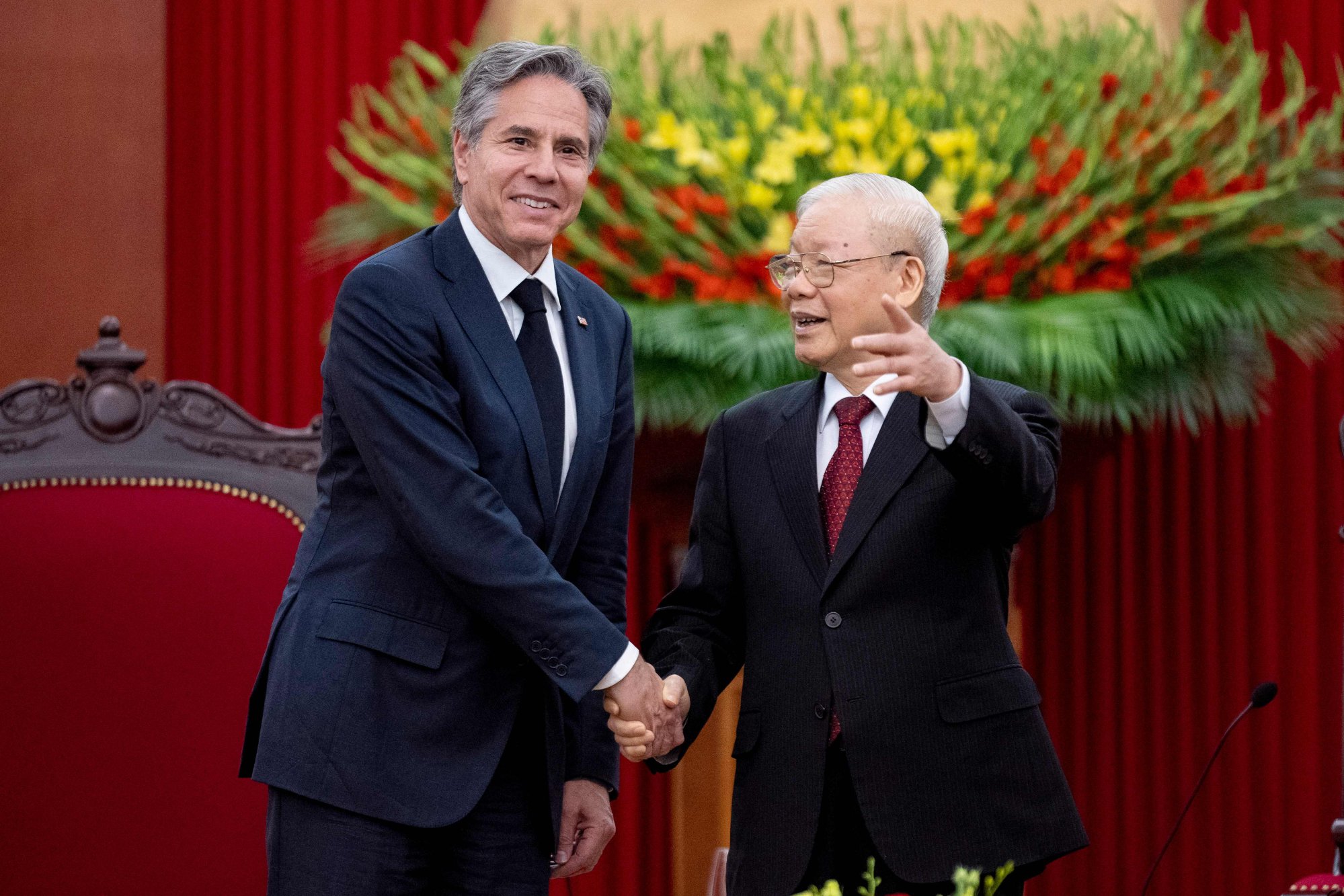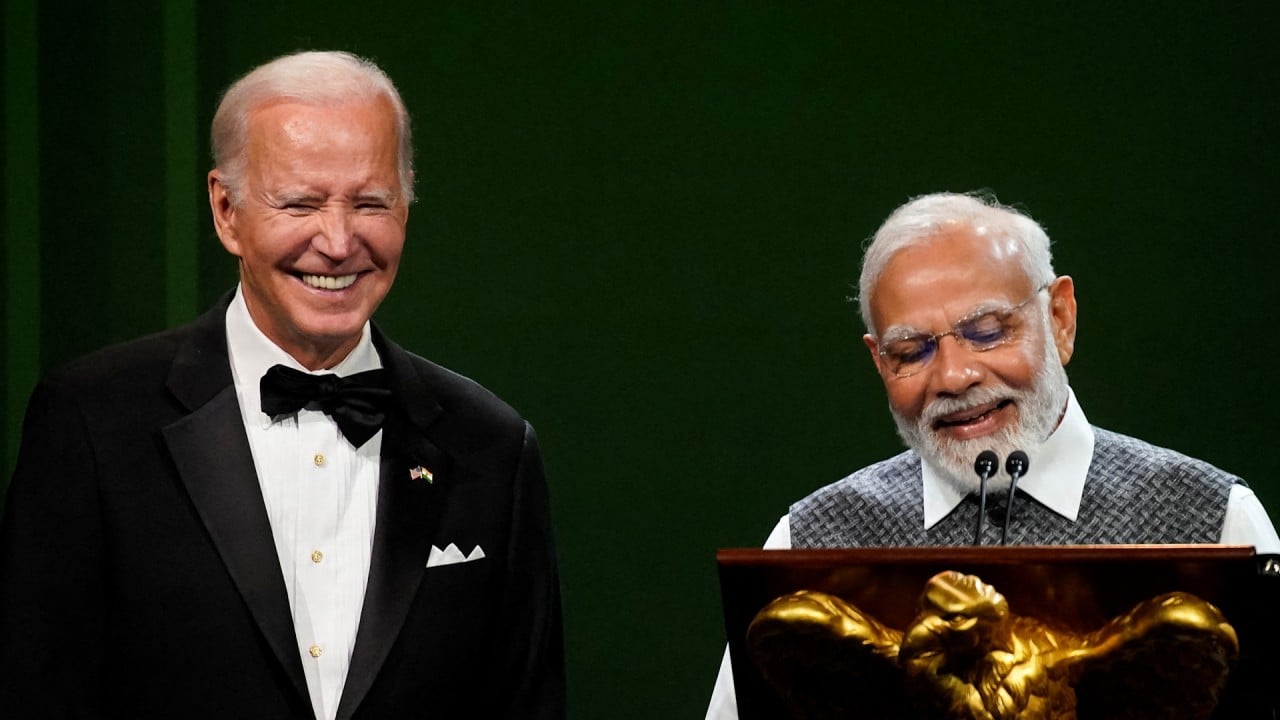
How can the US hope to lead the West when it can’t even see the wood for the trees?
- Washington’s inability to develop a better narrative than ‘democracy vs authoritarianism’ speaks poorly of its attempt to represent the West
- Meanwhile, US-led strategic thinkers are taking non-aligned Asian countries for allies, underestimating Moscow’s strength and failing to see that US policies have pushed Russia and China closer
Seriously flawed yet widespread narratives are clouding US-led Western strategic thinking. In skewing facts, neglecting past experience and being unhinged from current realities, these stock narratives serve only to justify muscular posturing and rising military budgets.
The Philippines and Vietnam are also presumed to be Western allies because of their differences with China in the South China Sea. Yet Manila and Hanoi are non-aligned, seek improved trade and broader relations with Beijing and are wary of being drawn into spiralling US-China tensions.
US-Vietnam relations are also flourishing a generation after Washington withdrew from its proxy wars in Indochina. Hanoi has since proven adept at soliciting no-strings foreign aid while proudly defending its national sovereignty and prerogatives. Nobody pretends a geopolitical alliance is brewing.

Cold War bipolarity is passé: Vietnam and the Philippines are too nationalistic to play the compliant junior partner to any superpower. The same applies to larger Asian countries such as India.
Much the same is true of Japan – it was for former leader Shinzo Abe as it is for Prime Minister Fumio Kishida – despite reports to the contrary. Tokyo and its formidable industrial sector retain a serious national interest in investing in China’s rise, with all its transnational prospects.
The true battleground in the US-China cold war will be in Europe
Still, Western elements bent on a feud with China continue to misread the signs and ignore obvious hints. Likewise with Western antipathy towards Russia in the proxy war in Ukraine. The Russian economy is less vulnerable to sanctions than expected, so moves to ban Russian imports backfired, with worsening inflation and exorbitant energy costs.
Wagner boss Yevgeny Prigozhin is a Russian patriot indebted to Putin for his success. Prigozhin’s problems were mainly with Defence Minister Sergei Shoigu and the army chief, General Valery Gerasimov. He remains a bitter foe of Kyiv so neither Ukraine nor the West can count Wagner as a prospective ally. Its march to Moscow was never more than a symbolic, if dramatic, protest.
When Washington cannot even fathom the implications of its foreign policy, how can it respond adequately to multilateral entities like BRICS and the SCO?
Geopolitical strength derives from strategic vision with intellectual honesty. Biden’s America offers none of that, never mind anything to occasion Western policy unity and coherence.
Bunn Nagara is director and senior fellow at Belt and Road Initiative Caucus for Asia-Pacific (BRICAP), and honorary fellow at the Perak Academy



